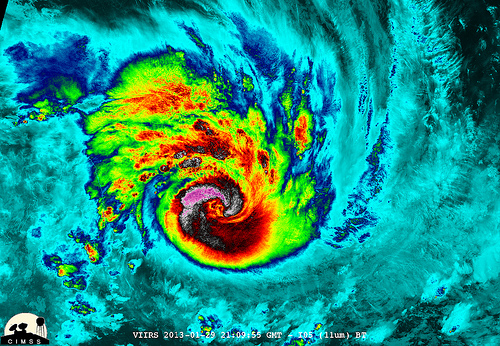
Energy & Climate Security: A Necessary Nexus
Energy and climate security should be treated as two sides of the same coin. But often, US national security analysts make a sharp distinction that separates the fundamental link the two issues share.
Both threats are existential in so far as they threaten the very basis of our lives. Until this day, the access and geographical proximity to supplies for energy has been the primary variable for determining the quality of living that has characterized advanced economies. In fact, Jared Diamond’s, Guns, Germs and Steel, echoes this sentiment. Similarly, predictive seasonal patterns, which have remained remarkably stable for 8-12 thousand years, enabled significant advances by humans in agricultural production, population growth, and technological innovation. It is therefore sensible to claim availability of energy and predictability of climate have a nexus.
Nonetheless, even with the energy renaissance in the US, energy security remains a major concern within national security circles. Yet, climate security remains on the margins, and seen predominately as an environmental issue.
Google Trends show the significant difference in search traffic for ‘energy security’ in comparison to ‘climate security’ since 2005. This sharp difference is further emphasized when you utilize Google Ngram, which accounts the usage of these terms in publications throughout the years.
This has begun to change, however, in recent years. As national security analysts have been forced to consider these events beyond solely an environmental concern given the frequency and volatility of high impact climate-related events.
As early as 2004 and 2005, global climate events were seen as security threats. In 2004, an earthquake followed by a tsunami in south Asia killed 230,000 people spanning 14 countries. The following year, Hurricane Katrina damaged US critical industrial infrastructure in the Gulf amounting to the most costly natural disaster in US history. From these events, the US has learned many lessons and have put them to good use. This was on display with the recent US response to Typhoon Haiyan in the Philippines as USS George Washington and three other US vessels alongside 300 Marines was first on the scene delivering food, water, shelter and logistical advice for allocating resources effectively.
Amidst the current debate in the US regarding lifting the moratorium on LNG exports and its geopolitical ramifications, it is paramount that the carbon-based supply of energy and its effects on the environment not supersede the undeniable truth. Global climate change threatens not only state and corporate assets, but the very foundation that has made the quality of living we have managed to enjoy all the more uncertain.
Since the 1970s we have sought solutions for our energy-strapped world. It is now time to invest with the same voracity towards a mitigation policy for climate change. This starts with drastically and rapidly relinquishing our global economy from its dependency on carbon-based energy. To do this, we must shift our conception of energy security to include the effects our dependency creates.





